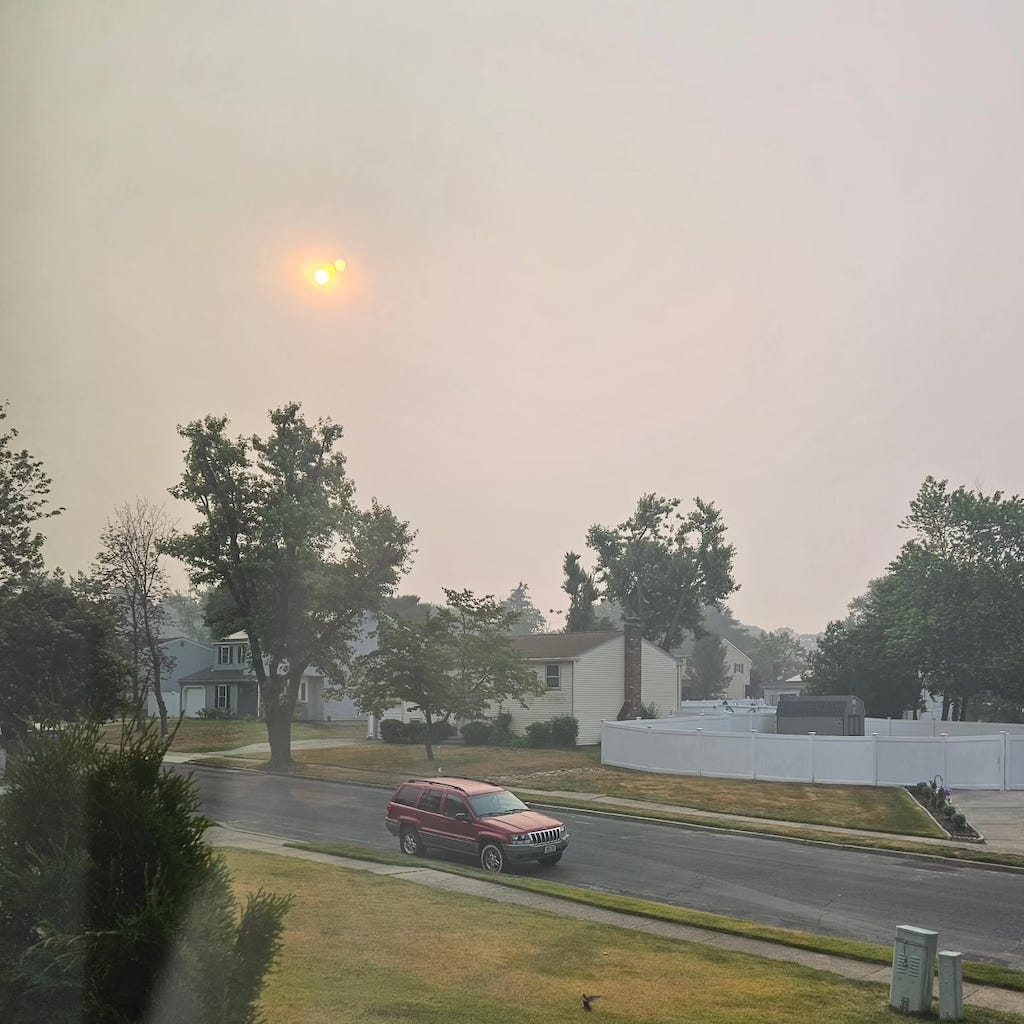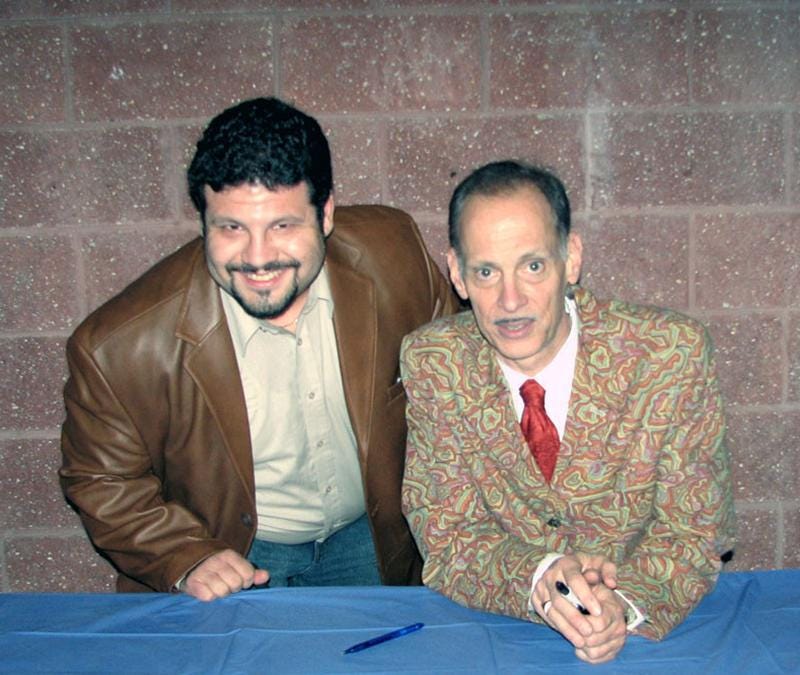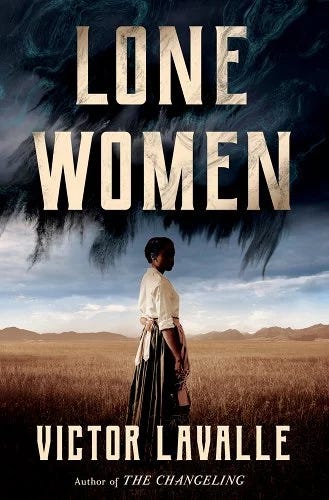The local Pride parade was postponed thanks to the raging Ontario wildfires. Thanks, Premier Ford! That dingbat cut the wildfire budget 67% in 2019, because that’s what conservatives do. (See also FEMA for every Republican administration in the US in recent memory).
The fires have turned New Jersey into Tatooine:
This has curtailed my morning hikes and bike rides, as the Air Quality Index is over 200, which is the equivalent of smoking banana peels, two bunches a day, for an entire childhood. (We never smoked banana peels as kids, but we did light catalpa tree seed pods when they dried out and pretend they were long cigarette holders.)
My throat is scratchy even though I’ve stayed indoors, and our HVAC has an air filter. It’s not one of the stronger filtration levels. I just ordered a 2200 MPR one to keep handy to swap in for days like these, because I have a feeling they will be more common.
But to hell with that. Here’s The Crazy World of Arthur Brown, with its lead singer at age 72, belting out their classic hit:
Today is all about joy. I listened to This American Life and they replayed their 2020 episode on Delight, including poems and essays by Ross Gay, from his book, the aptly named The Book of Delights. You can listen to it all here: The Show of Delights. It is, well, delightful. From when Ross Gay traveled with a tomato plant on a plane, to grammar school kid Cole going on his first school bus trip, it made my day.
And a tip of the hat (or a tit of the tat) to Philly artist Rose Luardo for her Boob Garden, which is bringing joy to her neighborhood.
I have been a fan of Elliott Page since his turn as a predator hunter in Hard Candy. He was of course famous as the lead in Juno before transitioning, and has made much of it public on his Instagram feed. Today, he talked about his choice to be public about it, which was made due to the constant attacks from right wing hate groups on LGTBQ people. His book, PageBoy, is available now. You can read a transcript of the interview here, or listen to it on NPR Fresh Air.
Gay elder John Waters also has a book out, Liarmouth. His first novel! He writes nonfiction quite well, and I really enjoyed Role Models. We met at a book signing, back when I looked and dressed like a shady car salesman, and then I went to see his Christmas show in New York. He’s still a delight. He’s almost quaint now, and A Dirty Shame was a lot of fun, but the most family-friendly movie about sex addiction that I can think of. When you start with Pink Flamingos, you don’t need to try to be edgier.
For my birthday, I went to the Mütter Museum in Philadelphia, which contains human oddities and medical curiosities. Their new leaders have been accused of bowdlerizing the museum’s online content archive, and there is fear that the museum is next, so I took my day off to drive into Philly (to avoid being outside in the smoke) and visit. There is a petition to protect the museum’s integrity, if you want to join. I have been avoiding Philly since I moved here two years ago. But today I took the train in, walked to the museum, then back to Reading Terminal Market and had a cheesesteak (The Franklin at Carmen’s, quite good) and a sflogliatelle1, an unpronounceable Italian pastry that I haven’t found locally. It was a good day, and I’ll be doing more of them. The only problem is that the only place to take a piss is City Hall, and you need to go through a metal detector. But most American cities do this, to make life miserable for unhoused people, and to make their streets and train stations smell like urine. It’s really stupid and awful for everyone.
If you can’t pee in a toilet you might get a Wet Leg. If you haven’t heard this song by them yet, now you have:
I went out for burgers and beer and devastated Sarah at Scrabble at a brewery. And I sat in a lounge chair—I’m sorry, the chaise longue—and finished a good book. The good book was Lone Women, by Victor LaValle. It’s about Adelaide, a young woman hauling a trunk to Montana in the early 1900s to stake a claim near the town of Big Sandy, where she meets some interesting townfolk. Who start dying once the trunk opens. It’s gripping horror story set during an interesting historical era in a fascinating and deadly place. I enjoyed it a lot!
Chris LaTray, who I share here a lot, said something wonderful and perfect recently: “What does it hurt me to be a little more thoughtful in noting more of my random encounters with my relatives, human or otherwise, with the tiniest of gestures?" Like him, I talk to animals on my walks, but I don’t always say hello or wave to humans. What could it hurt?
And I can’t remember if I’ve shared this, but
found nature on I-495. It’s everywhere you look. If you look…And to leave you with a good laugh, I loved this Letter of Note.
The one that looks like a clamshell. Not a lobster claw, those are different.











loved this thank you! and also your previous recommendation of The Beths album "Expert in a Dying Field"- I've been playing it on a loop and it's given me a lot of joy. This newsletter made me want to watch the movie "Nine Days" again, which definitely has its heavier moments, but also moments of joy and delight that are so profound and moving. (also worth watching just to see Winston Duke passionately recite part of Whitman's "Song of Myself"- so beautiful)
I'm curious about the Lavalle book. Big Sandy (where both U.S. Senator Jon Tester and my pal Jeff Ament, founding member of Pearl Jam, hail from) is right next door to the Rocky Boy's Chippewa-Cree Reservation. In the early 1900s the region was a hotbed of "what are we gonna do about all these Indians?" My people's version of the Trail of Tears (most tribes have one) originated with the Cree Deportation Act of 1896, which rolled out of Fort Assiniboine just up the highway from Big Sandy, when the "Buffalo Soldiers" – the all-Black 10th Cavalry, under "Black Jack" Pershing – rounded up as many of us as they could catch and drove us to Canada; first via rail cars, then on foot. All this led to the reservation's establishment in 1916. When I do my talks, I tell people that in simplest terms, one might say my Little Shell Tribe is comprised of the diaspora of people who didn't fit on that reservation though we are closely related. Does the book touch on any of that particular history?